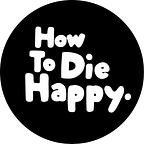Finding your temporal autonomy
How reclaiming your time can drastically improve your happiness
If asked to define your typical pace, what would you say? Are you mindful? Are you rushed? Or do you feel as if you’ve little time to do anything at all? Does life feel like one endless to-do list?
Fifteen years ago, when our recent guest, Carl Honore, found himself speed-reading his son’s bedtime story, he had an epiphany. Suddenly aware he’d been horribly “infected by the virus of hurry,” this moment of clarity left him not just questioning his personal tempo but also that of our broader society. So, right after deliberately reading his son’s story from cover to cover, Carl set out on a journey that would see him celebrated as an international bestselling author, with works published in over 35 countries.
His message to the world? Slow down!
In Praise of Slow, his first book invited us to become wholly aware of our internal metronomes, and ever since then, Carl has become one of the world’s foremost ambassadors of the slowness movement.
Now, with several books and Ted Talks in his wake and fame on the international speaking circuit, Carl’s planning a TV series about ageing, which relates to his latest book, Bolder: Making the Most of Our Longer Lives.
During our interview, Carl, Martin and Chris discussed sloths, mental health and much more. Above all, the three talked about the various benefits of slowing down and how making subtle changes to one’s life might eventually lead to a happier, more fulfilling death.
“This is a society obsessed with speed; infected in every corner by the virus of hurry.” — Carl Honoré
We are incredibly lucky to have had Carl on the How To Die Happy podcast. He brought a welcome message, and welcome he was too. By now, you may know that the thread holding the podcast together is the list of top ten regrets expressed by people on their deathbeds. It’ll come as no surprise that this woeful index contains many anxieties about how people spend (or waste) their precious time. And time is, after all, a finite commodity that we could all likely spend more wisely. As far as Carl is concerned, being aware of this fact can give life shape and meaning.
When we think of time, we often feel trapped or owned like our time is not ours since so much of its consumption is apparently co-owned, controlled or manipulated by others. Perhaps this is simply one of many such areas in our lives where we might feel powerless whilst having distinctly more influence than we realise. After all, free will is a universal law. Thus while we feel that our choices are limited, we rarely have “no choice” at all. Hence Mr Honoré almost called his first book In Praise of No. Imagine what it might be like to begin a process of creating healthy boundaries that would have you reclaim your temporal sovereignty to have more time to do the things that make you happy and healthy. Better still, giving you more time to do less so you can simply be. After all, we’re not called “human doings,” are we?
We take such a gift for granted in our hectic lives, though as Carl explained: when we begin to reclaim ownership of our “temporal autonomy,” some magical things can quickly occur. So what if you succeed in giving yourself the wonderful gift of more time? What to do with it? Well, in the first place, you might wish to consider doing nothing. For in the nothing we can make plenty of space for something. With this in mind, perhaps ‘SLOW DOWN’ ought to be at the top of everyone’s to-do list every single day?
Huge thanks to the award-winning author, speaker and journalist, Carl Honoré, for an enthralling and entirely entertaining podcast discussion. We hope to see (and hear from) him again in the not too distant future.
Extra thanks to you for reading this article all the way to the end. We appreciate the gift of your precious time. If we’ve earned the right to ask for more, please do consider listening to the entire podcast interview here.
;)
